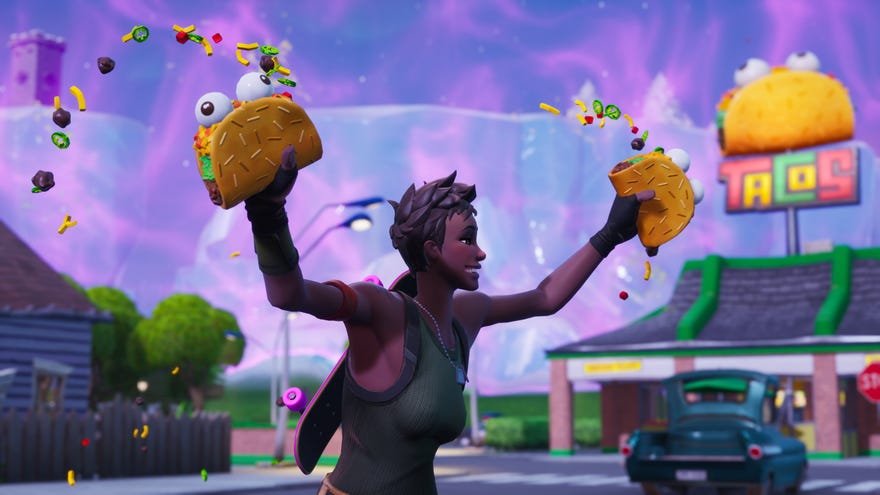Just 66 titles saw 80 percent of all playtime in 2023, most older games like Fortnite or GTA 5
Over half of playtime was spent in games at least six years old, says new report
The PC and console market grew by 2.6% to $93.5 billion in revenue last year, according to a new report by video games date company Newzoo (cheers, Kotaku!) That’s good, right? Growth is universally a good thing, otherwise all those nice, dead-eyed men in suits wouldn’t keep saying it was. You can’t just lie about growth, that’s a business crime. However, here’s some slightly more worrying news, depending on how much you value new ideas: Of all the game time that gamers spent gaming in quantifiable Big Year for Gaming 2023, just 20% of that time was gamed on games other than the 66 specific games mentioned in the report.
Even more troublesome for novelty enjoyers is the revelation that a huge chunk of 2023’s playtime was spent in games that were at least six years old or older. You’ve likely already predicted the top candidates, looming over the landscape, warring for territory like the Godfather’s five families. Fortnite, League of Legends, GTA 5, Minecraft, and Roblox took a sizeable 27% of all playtime between them. All told, as Kotaku point out, “Only 8 percent of video game playtime was spent on new, non-annual titles like Diablo 4 or Baldur's Gate 3.”
It all sounds damning on the surface, although I think it’s probably worth pointing out that many of these players don’t necessarily represent lost market share for new, single player titles and the like, since many of the games mentioned represent entire hobbies in themselves. Still, it’s a shock and slightly disappointing to see so many hands grabbing for the same plate of chips at the buffet while more interesting offerings get left to grow cold on the periphery, struggling to find an audience, and causing publishers to become ever more risk-averse in the process.
Earlier in the year, RPS spoke to Nightingale lead and ex-Bioware developer Aaryn Flynn, who had this to say on the difficulty of breaking into a market dominated by a handful of, usually live service, games:
"The idea that the games industry is a hits-driven business where the majority of the success goes to the minority of the developers, the minority of the studios - everybody knows that and everybody gets that, as harsh as that might be. I think there was this historical pattern that games end, and people stop playing certain games, and so then there's a hunger and a desire for new games and interesting games and improved games. I think the calculus that's different now for players is - the total industry revenue is whatever it is for the year, and that used to be all new games, every year. And then the next year it's all new games again. There's this incredibly thick line now of that revenue, which is games that are five, even 10 years old, like GTA Online, and those games have done so good, and are so exceptional because of the just enormous amount of investment that's been put into them, that they are evergreen."
Newzoo echoed Flynn’s sentiments on ‘evergreen’ titles in their report saying, as highlighted by Kotaku:
“It will be increasingly challenging to grow a game’s playerbase … particularly in our current landscape, where evergreen titles and robust content pipelines reign supreme.”
'Supreme' is certainly one word for it, anyway.









